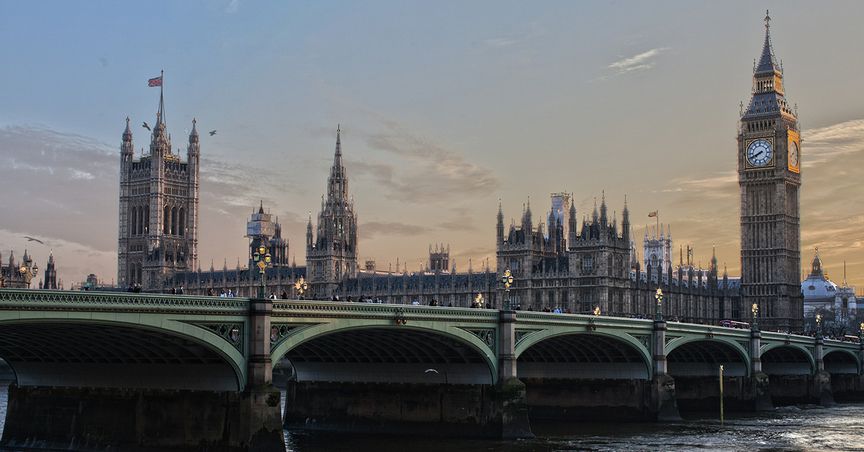Summary
- UK Prime Minister Boris Johnson recently said that his government is ready for a no-deal exit from the European Union’s trading system
- Industry Associations feel companies will find it hard to cope up if there is a no-deal exit
- It is predicted that the UK may face more economic hardships if it leaves the EU trading system without a deal
The deadlock over the negotiations about the Brexit trade deal between the UK and European Union (EU) appears to have no favourable end. Recently, PM Boris Johnson said that his government is fed up with the developments and responses and might just go for a no-deal exit from the EU’s trading system.
Brexit deal negotiations between the UK and EU were stuck last week after the British government told EU trade negotiators not to plan a trip to London without framing any viable solution. Recently, Brussels refused to sign a Canada-style trade deal with the UK. Johnson’s warning to the EU to end the transition period on January 1 without a trade deal was seen as dramatic in the moment of crisis before both sides agreed upon a deal.
Expressing concerns over the no-deal scenario, industry experts have warned the British government of dreadful economic consequences for years if there is no trade deal. They have predicted that amid the coronavirus pandemic, the consequences will be worse.
Industry Associations View
Johnson’s warning has left many industries and enterprises in disarray, especially at a time when the businesses have been badly impacted due to the pandemic. If there is no trade deal, it would mean that Britain will have to follow the World Trade Organisation (WTO) rules while doing business with the rest of the countries in the EU. This would mean added tariffs, other forms of taxes and delays mainly for the manufacturing sector. Confederation of British Industry (CBI) director-general Carolyn Fairbairn believes that Britain and the EU cannot afford to move ahead without the deal, especially in the current economic situation.
The degree of uncertainty and fear over no-deal Brexit has watered down all the hopes of young entrepreneurs who wished to establish their business across the EU. The work visa restrictions, high tariffs and other regulations are surely seen as a hurdle. And, in order to protect the businesses, more than 70 trade bodies and professional institutions have issued a joint appeal to the UK and EU for carving out a deal.
Many believe that after 45 years of Britain integration with Europe, a no-deal will mean chaos for companies and industries such as goods transport or the aviation sector. Other issues that need urgent attention are fair competition rules, dispute resolution and fisheries. Mike Cherry, national chairman at Federation of Small Businesses, said that many companies are not equipped to deal with a no-deal Brexit.
Brexit failure has affected the medicine and health care sector too. For instance, due to uncertainty over the Brexit deal, the UK’s pharma industry has urged Johnson to sign a side deal in order to avoid disruptions in the supply and demand of medicines. If the UK and EU fail to strike even a deal or sector-specific pact, millions of pounds will be wasted and obstruct the medical supplies for up to six weeks, as per the pharma body Association of the British Pharmaceutical Industry.
And that is not all. The FTSE 100 Index has strongly underperformed this year, and sterling’s concurrent weakness against the euro has failed the business confidence in the country.
On similar lines, Make UK, which represents manufacturers in Britain, said even if the deal may be signed, it could be not the same as what was discussed earlier with Theresa May.
Make UK’s executive director Ben Fletcher said that many companies across the sectors are nervous about the intricacies in the agreement which may be hidden as of now and perhaps will be out once the deal is signed. Things would be different from 1 January 2021, as far as businesses are concerned, he added.
Echoing the same, Ian Wright, CEO at Food and Drink Federation, highlighted that the no-deal Brexit is likely to cause major disruption in the business, challenging the food security and shoot up the prices in consumer shops.
Conclusion
Johnson’s move could be a pressure tactic to win over the EU and so that it can have its way for certain trade rules and regulations. However, on the other side, the EU seems in no mood to please Britain, especially when talks have halted over fishing rights in the UK waters and level playing field regulation in connection with the UK’s future use of state aid.
The no-deal exit will cause Britain a massive economic hardship with its access to the single market coming to an end. Many analysts feel that the latest warning from Johnson is nothing but an impulsive move. Picture this, the EU is the UK’s largest trading partner. In 2019, the Brits sold 43 per cent of all their exports, while more than 50 per cent of British imports, which is estimated to be around $470 billion worth, came from the EU.
Going ahead, PM Johnson's statement may go down well with pro-Brexiteers, but many economists are of the view that any stretch of the imagination of no-deal Brexit would not be beneficial for Britain. In the coming days, it would be interesting to see the developments unfolding about no-deal Brexit.




_05_02_2023_11_39_05_949694.jpg)

